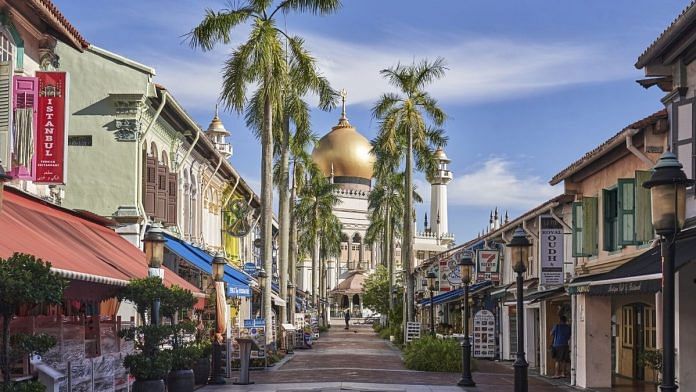Singapore: Singapore won’t return to the open and connected global economy that existed before the island nation went into a partial lockdown two months ago due to the outbreak of the coronavirus, Prime Minister Lee Hsien Loong said.
Singaporeans will have to prepare for a different, admittedly tougher future with rising unemployment as companies work to cope with slowing demand and movement restrictions from various governments, Lee said in a televised address on Sunday. It was the first in a string of speeches to be delivered by five more ministers in the coming two weeks as the island nation draws closer to general elections.
The city state has benefited from an open global economy, serving as a hub for trade, investment and the financial market, he said. “Countries will have less stake in each other’s well being,” Lee said. “They will fight more over how the pie is shared, rather than work together to enlarge the pie for all. It will be a less prosperous world, and also a more troubled one.
Singapore is spending S$93 billion ($66.7 billion), or 20% of its gross domestic product, as part of its economic response, helping workers stay in their jobs as well as supporting businesses and their employees to cope with the fallout from the virus. Lee said that while the country is able to draw on its reserves and doesn’t have to pay for its support measures by borrowing, this level of spending is hard to sustain ‘even for us’. The economy is expected to post its biggest contraction since its independence more than a half-century ago.
Also read: What Singapore needs to do to reopen its economy after lockdown
The travel industry, such as airlines and hotels, will likely take a long time to recover from the pandemic as health checks and quarantines will become the norm in the future, Lee said. The disease could remain a problem as vaccines are unlikely to be widely available for at least a year, he said.
The prime minister referred to jobs as “the government’s biggest priority,” warning that the labor market is likely to be very different, and that many businesses will be hit hard. In the meantime, he said that Singapore is working to retain and attract talent and investments in order to contribute to its recovery. “At a time when some countries are closing their doors, we are keeping ours open,” he said.
The number of unemployed residents in Singapore may rise above 100,000 this year from around 73,000 in 2019 due to the impact of the Covid-19 pandemic, Deputy Prime Minister Heng Swee Keat said last week. This is more than Singapore’s highest annual average number of 91,000 unemployed residents that was registered during the 2003 SARS epidemic, he said.
Lee’s speech comes at a time when the Southeast Asian nation needs to hold elections by mid-April, though there are signs they could happen before then. Last month, Heng told local media that the sooner the election is held, the sooner its citizens can rally to deal with long-term issues and uncertainties that face the country. Parliament has meanwhile passed a “special arrangements” bill that includes new measures to ensure the safety of voters and candidates during an election that may have to be held amid the pandemic.
U.S.-China Tensions
On a global level, Lee reiterated that countries like Singapore will have to navigate through a changing geopolitical landscape as tensions worsen between the U.S. and China, the world’s two biggest economies. “Actions and counter-actions are raising tensions day by day,” he said. “It will become harder for countries to stay onside with both powers.”
With almost 400,000 deaths globally, the Covid-19 pandemic has become a point of friction in China’s relationship with a number of countries, most notably America. President Donald Trump has repeatedly faulted China for having failed to contain the coronavirus when addressing the outbreak in the U.S., which now leads the world in both infections and deaths.
Lee said he saw a more dangerous world for a small country like Singapore, and the country must work with like-minded countries to support free trade and multilateralism.
Singapore also needs to strengthen its social support for the people as they face more uncertainties brought on by the virus, Lee said. The island city needs to think carefully about how to improve its social safety nets and ensure all Singaporeans have equal opportunities.
Ministers, including Heng, will address the public this month to share more plans for the future of the island city. –Bloomberg
Also read: Singapore PM says China can’t take America’s security role in Southeast Asia



